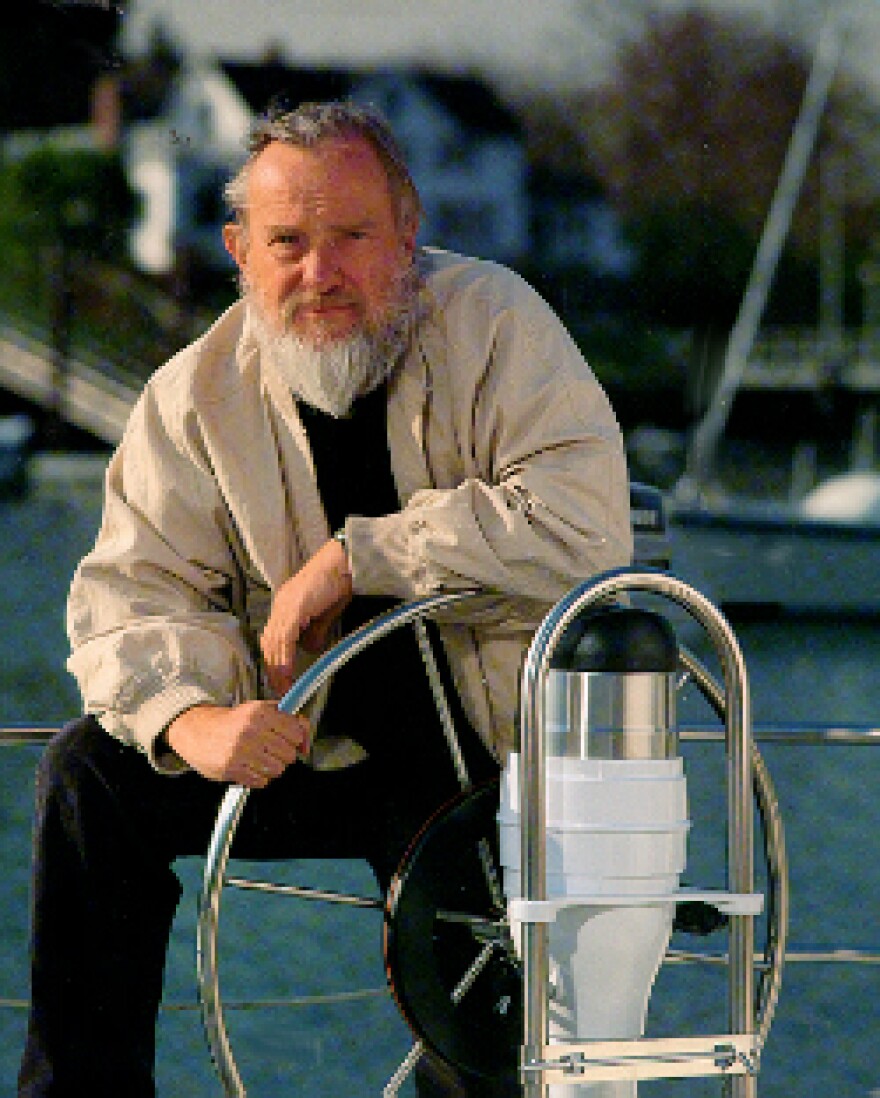"I think the very process of writing fiction, writing poetry, writing anything that is intended to stir the soul, is by way of being of service."
Robert Stone
Novelist Robert Stone, author of A Flag for Sunrise and Hall of Mirrors, died Saturday at his home in Key West, Florida. He was 77.
Stone was a finalist twice for the Pulitzer Prize, and won the National Book Award in 1975 for his novel Dog Soldiers.
NPR reportedthat Stone "was a neglected and traumatized child who learned early not to trust reality, a lapsed Catholic consumed by questions of sin and redemption."
A native New Yorker, Stone was abandoned by his father at birth. His mother was institutionalized because of schizophrenia, so he ended up in a Catholic orphanage. A high school dropout, Stone joined the Navy and landed in New Orleans in his 20s. There, he wrote, experimented with drugs, and spent time with the likes of Ken Kesey and Neal Cassady.
"We were there on Perry Lane, and Bob Stone came in with a face lit with whiskey and anarchism," Kesey told the Times Magazine before his deathin 2001. "And he said, 'I hear you’re the bull goose looney writer in this neck of the woods.' I took it as a challenge. What impressed me about Bob was his ability to riff. This is what made him a Prankster."

Later in his life, Stone was an instructor at various institutions, including Amherst College and Yale. The writer considered himself a teacher, and took that role very seriously.
"I do more thinking about the impact I may have made as a teacher than I think a lot of writers who spend time in classrooms do," Stone said in a 2013 interview on WNPR's The Colin McEnroe Show."I think the very process of writing fiction, writing poetry, writing anything that is intended to stir the soul, is by way of being of service, insofar as insight is what gets you through, and insofar as the purpose of fiction -- the purpose of poetry, of writing of any kind -- is the furthering of insight."
When he was teaching would-be writers, Stone said, "They are about to take on a service that they have to perform, that they’re bound to perform, with a certain degree of responsibility. That’s very much on my mind, and I like it to be on theirs."
Listen below to Robert Stone talk about being a teacher:
Hartford resident Rand Cooper, writer and former student of Stone's, wrote about Stone's class at Amherst College:
He had a big beard and sat at the head of the seminar table smoking nonstop — the deepest, most intense cigarette inhaler I’ve ever been privileged to watch. His counterculture credentials were impeccable. He had traveled everywhere and entertained us with stories of New Orleans, Mexico, Vietnam and the Caribbean. People were always either getting high or getting beaten up in some alley. It was a Kerouackian notion of the writing life, but he was a better writer than Kerouac. At the beginning of the semester he profoundly read aloud Conrad’s Preface to The Nigger of the Narcissus, and smoked those cigarettes, and made everyone believe that writing fiction was the most majestic thing any of us might aspire to.
Listen below to Stone talk about relating to the characters in his 2013 novel Death of the Black-Haired Girl, which takes place largely on a college campus:





